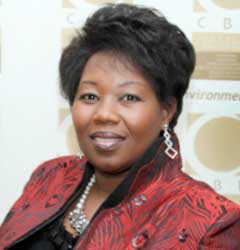Property contributes R191.4bn to SA economy

Council Chief Executive Portia Tau-Sekati said this was the first time the property sector's gross domestic product (GDP) contribution was measured this accurately‚ and that it was research which would make the implementation of transformation policies in the sector easier.
"The property sector makes a significant contribution to the country's economy and it is important to pursue this research to its conclusion for several reasons.
"Aside from the fact that no reliable figures have existed on the size and impact of the sector before‚ in a sector as big and as important as property there should be ample opportunity for transformation to take place‚" she said.
The council‚ which is made up of industry stakeholders including property company representatives‚ members of the National Economic Development and Labour Council‚ the Estate Agency Affairs Board‚ and others. The report estimated the size of the economic activity in the property sector in terms of annual income and expenditure flows generated by the sector.
Residential sector's contribution
Breaking down the R191.4bn‚ the research showed that in 2012‚ the economic contribution to South Africa's GDP by residential property sector was R103.7bn‚ while it contributed R20.1bn to the fiscus through various forms of tax.
On the other hand the commercial or non-residential property sector contributed R80.9bn to GDP and R253bn to the fiscus through various direct and indirect taxes.
The analysis in the report used the life cycle of a property‚ from origination to its end cycle.
Tau-Sekati said detailed research would be carried out in phases. The first phase measured the size of the property market‚ and the second its financial and economic revenue. The third‚ currently underway‚ measures and analyses transformation using broad-based black economic empowerment tools‚ with eight elements contained in the property sector code.
The release of the report was sponsored by Dipula Income Fund.
Izak Petersen‚ Chief Executive of Dipula‚ said the report held substantial value for the property sector.
"Dipula is proud to sponsor research that enhances the knowledge base of the sector‚ contributes to its growth and benefits all participants‚" he said.